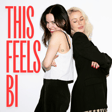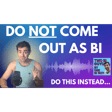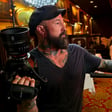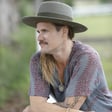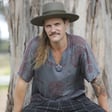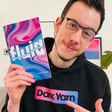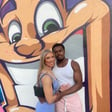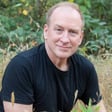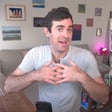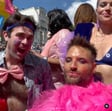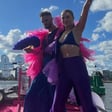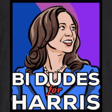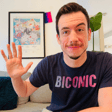
Authentic Bi+ Storytelling with Aaron Hammersly
This week I sat down with my friend Aaron Hammersly, filmmaker and production executive at Disney, board member on the LA Bi+ Task Force, and outspoken advocate for the LGBTQ+ community, working especially for more inclusive representation in front of and behind the camera. Earlier this year, Aaron co-authored Re-Write the Bi-Line’s “Bi+ Narratives: A Guide to Authentic Representation in Storytelling”, the first comprehensive guide to portraying bi+ characters in film and television.
In this IN-PERSON (!!) interview, we talked about Aaron’s queer journey; “the social insidious nature of biphobia and bi erasure”; why it’s difficult to represent queerness within the major studio system and in our current climate; the costs and benefits of being out at work for writers, producers, and other creatives; why it’s unfair and unproductive when writers’ rooms fill a “diversity slot” instead of valuing diverse identities and experiences across the board; and how Aaron got involved with “Still Bisexual”, “Rewrite the Bi-Line”, and co-author Christina Fialho in order to write the Bi+ Narratives Guide.
We then dove into the recommendations in the guide (like “if the audience does not know if the character is bi+, we cannot change the narrative for bi+ people”, and “expand opportunities and empower new voices”), and we began to discuss case studies of bi+ representation in the current film & TV landscape. Stay tuned for more with Aaron in next week’s season finale when we continue going through the guide!
Magic Mind: You have a limited offer you can use now, that gets you up to 48% off your first subscription or 20% off one time purchases with code TWOBIGUYS20 at checkout. You can claim it at: https://magicmind.com/TWOBIGUYS20
The Bi+ Narratives Guide: https://www.rewritethebiline.com/bi-test
Follow Aaron on IG: https://www.instagram.com/secretsyrin/
“Manic Pixie Bi Boys”: https://www.queermajority.com/essays-all/the-manic-pixie-bi-boys
SURJ: https://surj.org/
DSA website: https://www.dsausa.org/
